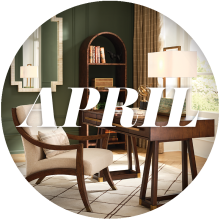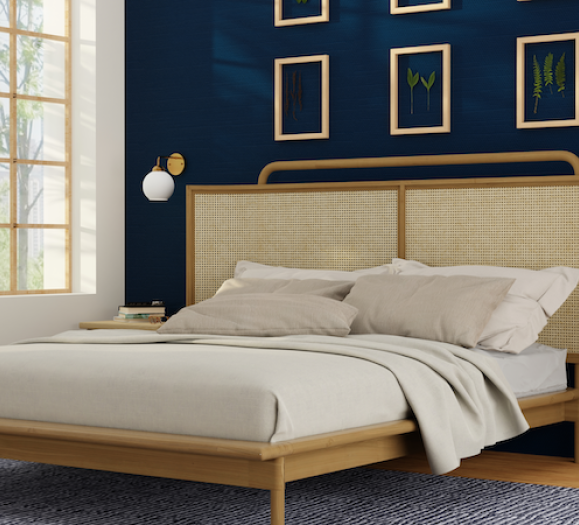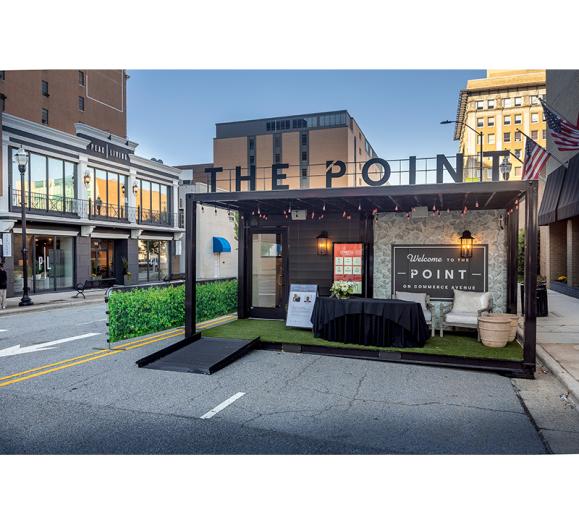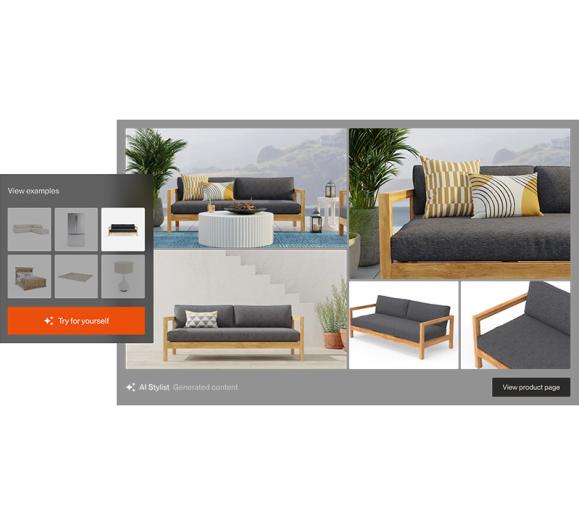At a time when sourcing furniture, lighting and home decor has become a challenge for everyone, there is a way to procure product that interior designers should be considering if they aren’t there already, especially as supply chain issues and delivery delays continue to disrupt wholesale sourcing.
Interior design business models vary as much as the designers who run them. In today’s climate, however, for the projects that need the furnishings now or require technical knowledge, your local lighting, furniture or lifestyle retailer may be somewhere to consider building relationships that can benefit everyone.
In some designer business models, it makes sense to source wholesale. But that’s not for everyone. Markets are exceptional for seeing what’s in stock, new and trending, as well as building those wholesale connections; however, sometimes your local furniture or lighting retailer presents opportunities for year-round sourcing and project support.
“I don’t want a warehouse or employees or a van,” says Wendy Glaister, of Glaister Interiors, in Modesto, CA. “I don’t feel the need to be the be-all and end-all of everything. I can never learn enough to be cutting-edge in every category.”

Glaister, who has a thriving interior design business, says she has the ability to cater to her clients because she doesn’t try to be — or want to be — a sourcing expert. “I give my clients the very best because I go to the experts. My ‘experts’ help me place orders because they have the time and the depth of knowledge to do it well,” she says.
In her northern California region, Glaister works with several local retailers on different pieces of her projects — Slater’s for furniture, Philips Lighting for her lighting needs and Suite 52 for occasional furniture and home decor. With her retail partners, Glaister gets a minimum 20 percent discount which gives her room to mark up to her clients. “Through some designated wholesale showrooms, you’re not necessarily getting the best price by ordering directly,” she says. “If I have to mark up, my price would be more than the retail price.” In return for the discount, she pushes a lot of volume through her retailers with the projects she’s working on — huge rooms, whole homes and more in the past year. More importantly, Glaister continues, the bigger benefit for her through these relationships is the expertise. “There are so many technical things to understand in lighting and flooring,” she says. “At Slater’s [her furniture retailer], they know all the ways to customize. I don’t have the time to learn that.”
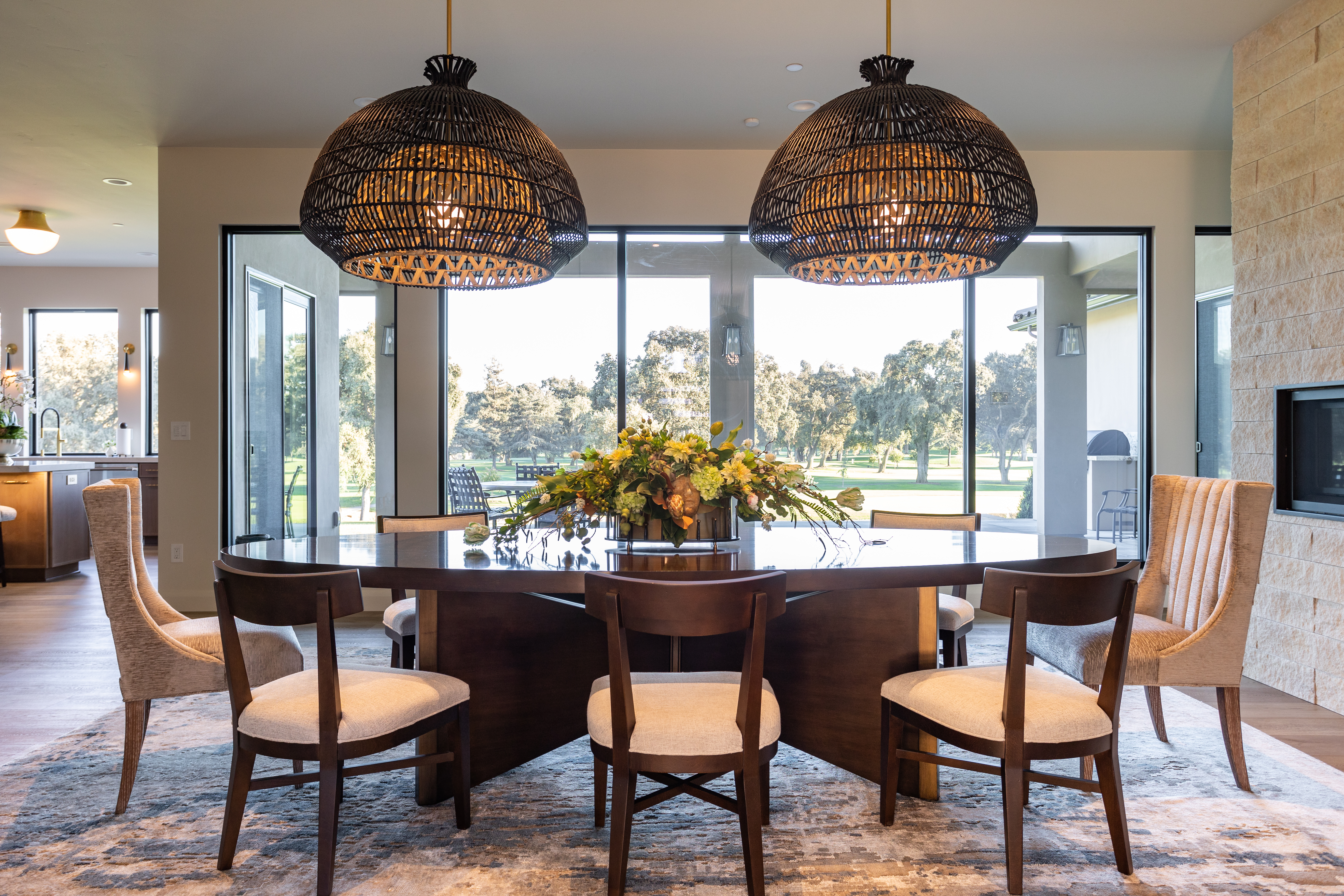
Retailers who work with designers, too, have already curated their assortments, much of which is in stock or ordered and in the pipeline. According to Jason Harris, Co-owner of Furnitureland South and Founder of The Design Network, a media platform about and for the design trade, the Jamestown, NC-based retailer made the strategic decision some time ago to cater to designers as well. “It’s a great value to the designers who would rather not be retailers themselves,” he says.
At Furnitureland South, designers have access to 1,000 different brands, a partner with the ability to receive and consolidate goods in a climate-controlled distribution center, a robust design center with myriad finish samples and tens of thousands of fabric samples, staff that maintains catalogs, and space that can be reserved to work — for free.
“We really took a lot of time when we designed the design center,” Harris says. The space features varied height workspaces, pin-up boards, Apple TV Airplay for presentations and private rooms for designers with clients. “We print house plans and custom signs to reserve space. We make it a comfortable, VIP experience.”
And while Furnitureland South is dealing with some of the same supply chain challenges as other retailers and designers, the volume they turn means there are always furnishings in the store and a lot of pre-ordered inventory. “We’re flowing more containers and products than we ever have,” Harris says. “We’re not immune to the lead time challenges because of supply chain hiccups and incredible demand, but if someone is designing a house where furnishings are a ways out, they’re buying ahead to ensure product will be available.”
The furniture retailer also provides a plethora of customization on the products it carries — hence the tens of thousands of fabric samples. Harris continues that Furnitureland South sells more custom furniture out of its one store than anyone else in the world. “We can do anything,” he maintains. “We enable that designer to do more custom than they might be used to because our design consultants are so well-versed in that. It opens more options to our designer clients.”
Furnitureland South offers good discounts to the designers it partners with as well, 20 percent off of the price to the consumer is the norm. “It’s a great value to these designers,” Harris adds. “Some don’t want to set up all the accounts and do all the paperwork and accounting, and try to figure out all the logistics. We handle that for them.” The program has been so successful that designers now make up 12 to 15 percent of Furnitureland South’s clientele, he continues.
Like Glaister with her retail partners, designers can bring in substantial orders. More importantly, designers who shop this retailer have a “person,” Harris notes. “We connect them to their own personal project managers who work as liaisons, checking stock, pricing and availability. We do the research.”
Tech Support
The ability to customize and work with a partner that manages the logistics is as important in lighting as it is in the furniture category. With lighting, too, there are technical considerations that require expert attention, something many designers might not be as well-versed in as associates in a retail lighting showroom.
Dominion Lighting, for example, caters to its designers with a light lab and the expertise to educate on the more technical side of lighting, on-site technical assistance at local projects, and a space where designers can work with trained associates, with or without their clients, to create elevated lighting plans for their projects.
“You can’t be a subject matter expert on everything,” says Matt Rowan, Vice President, Residential Lighting at Dominion. “If you are the conductor of an orchestra, you know how to bring all the pieces together, but you have to leave the individual performances to the musicians. One less thing to worry about is a good thing for the designer.”
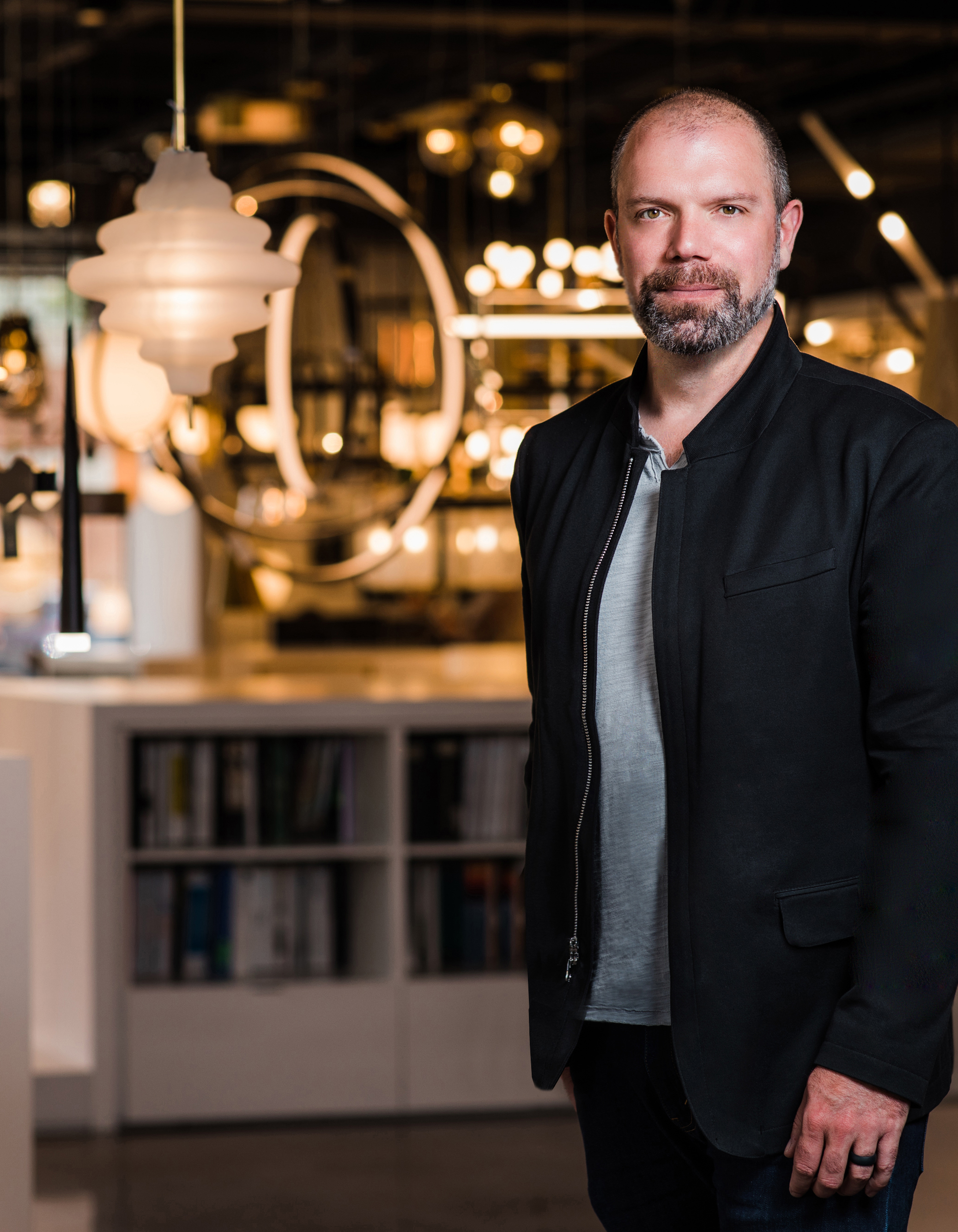
He adds that when the company recently reconfigured its Arlington, VA, showroom, it had its designer clientele in mind. There are spaces for designer customers to sit down and talk about various points of the scripted experience throughout the showroom with the retailer’s expert associates. “We direct clients toward the individual attributes of lighting,” Rowan says, noting that “you can stop everything you’re doing and go see the bulbs, or the nature and design of a fixture. The light lab we have allows us to focus on the nature of light. To really get something across, we know we have to show it and not just talk about it.”
Rowan continues that Dominion associates have the technical knowledge that’s needed on the showroom floor and on site when a designer client needs assistance with placement, wiring, controls and more. Dominion will send technicians to a job site. “We provide upgraded services that can include photo composites, site visits and more,” he says. There is a fee for this service, but when a designer then purchases lighting through Dominion, that fee is credited toward the purchase. “We also have a team that is dedicated to ‘after the sale.’ If something is broken, not the right finish, warranty claims, they take care of all of that,” he continues.
At this lighting showroom, which was reworked into a far more more customer-centric space in 2020, designer customers have dedicated spaces to work with their clients — with an expert if needed — to learn about the more technical side of the lighting they’re sourcing. In addition, they can pull from Dominion’s curated stock — which the retailer knows will sell through — all with at least a 20 percent discount on product purchases.
As the pandemic has progressed, too, while Dominion has curated its assortment to those more popular selections, the company has had the foresight to order deep. “We can order based on what we know is going to be out of stock later on,” says Rowan. “We’re doing a lot of preemptive ordering. That’s an advantage we have as a retailer.”
Two Way Street
Many retailers make an effort to cultivate designer business, recognizing that those relationships can work to their benefit as well as to the beneffit of their designer customers. Discounts for designers shopping through retailers tend to hover around that 20 percent mark with some flexibility. And designers can find products through retailers that may be months out when ordering from wholesalers or even unattainable otherwise.
At Coco & Dash, a Dallas-based home decor retail showroom, designers partner with them for accessories, such as art, home decor and pillows. Coco & Dash makes its own custom pillows and lampshades, and also carries vintage or unique items that are limited in quantity and only available through their shop. “Stores like ours are perfect for those designers who are looking for that something extra, particularly toward the end of a project,” says Teddie Garrigan, Co-owner of Coco & Dash with her daughter Courtney Garrigan. “We have a specific aesthetic that works with varied design styles from contemporary to traditional.”
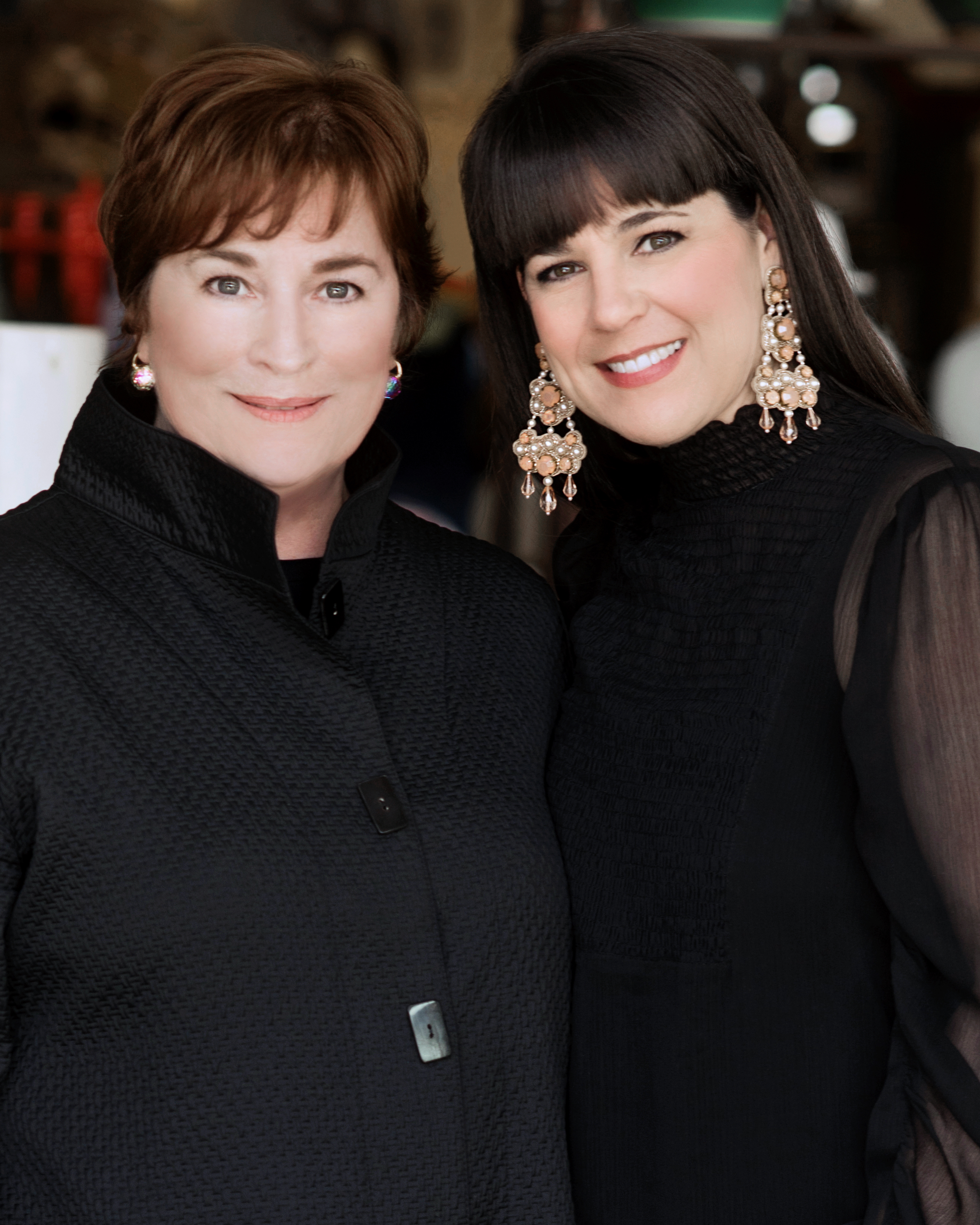
For designers looking for the Coco & Dash aesthetic or that perfect accent piece, it’s a plus that those finishing touches are available immediately. Also, when ordering custom product, lead times can be shorter through this retailer sourcing domestically than from a manufacturer sourcing overseas. Plus, “designers can’t meet the buy-ins we can meet when ordering wholesale,” Courtney adds.
Coco & Dash is a design firm too, so one of the first rules of designer/retailer relationships is to respect each other, says Teddie Garrigan. “We don’t poach clients from designer customers,” she adds, nor will they impart advice to the clients of designers who come into the store. “We tell them ‘trust your designer’ and we don’t weigh in. We are an advocate for that designer.”
In return, the Garrigans prefer to work with designers who understand their business too. As much of what Coco & Dash provides are those “final touch” pieces, the policy is that customers can try out products for 24 hours and return them if they aren’t the right fit. Designers will sometimes source accessory pieces for reveals or photo shoots. The customer-centric policy is not to be taken advantage of, however. There needs to be a mutual respect for each other’s bottom line and business.
The upside of retailers and designers working together can far outweigh any potential challenges. Designer clientele is “absolutely good for our business,” says Courtney. “When designers have really good taste and do beautiful work [with pieces from Coco & Dash] it benefits us. It has the potential to spread information about Coco & Dash and what we can bring to someone’s home.”
“Designers share with other designers, and that can bring more people into our tent,” adds Teddie. In addition to its unique decor assortment, Coco & Dash also holds events — book signings, Design Live, panels featuring product developers and other designers — fun social events with an opportunity to learn. “Our design programs always get rave reviews from designers. Everyone is always looking for inspiration,” she adds.
Retailers who cater to designers often find it’s a win-win all around. Designers become repeat clients and share their finds in ways that can build a store’s clientele further. Retailers not only offer discounts that benefit its designer partners, they also share expertise, customization and the ability to have in-stock product that might otherwise face delivery issues and potentially impede a project.
For Glaister, of Glaister Interiors, her retail relationships are the engine driving much of her business. In return, she has delivered a significant amount of business back to her retailers. Her retail partnerships have gone beyond business to become friendships. “We watch out for each other as friends,” she says. “That friendship and support is huge and takes a lot of the anxiety away. I get to work every day with people I care about and who care about me.” What could be better than that?

